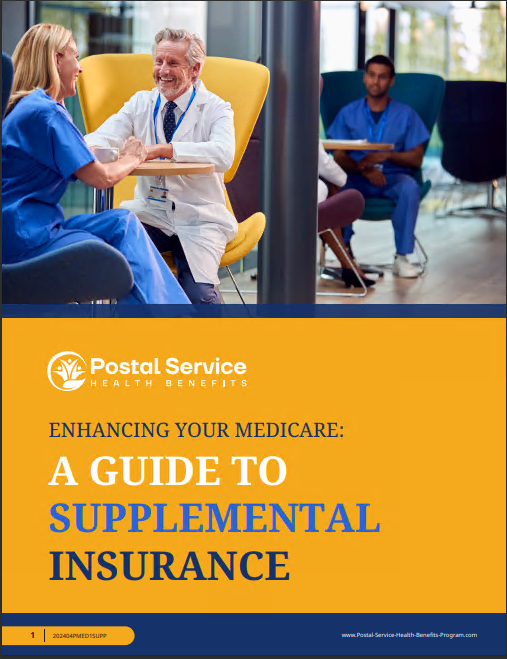Key Takeaways
- PSHB offers comprehensive health coverage for postal workers, including provisions for spouses and dependents, ensuring peace of mind for the entire family.
- Dependents and spouses are eligible for various benefits under PSHB, helping families navigate healthcare expenses with ease and access critical medical services.
Postal Workers, Here’s How PSHB Covers Your Family’s Health Needs – From Dependents to Spouses
As a postal worker, ensuring your family’s health and well-being is likely one of your top priorities. The Postal Service Health Benefits (PSHB) program provides health coverage options that extend beyond just you, the employee. It encompasses your spouse and dependents, offering a vital safety net for your family’s health needs. Understanding how PSHB works, who qualifies for coverage, and what benefits are available is essential for making informed decisions about your healthcare.
What Is PSHB and Why Is It Important?
The Postal Service Health Benefits program is a health insurance initiative specifically designed for U.S. Postal Service employees and retirees. This program offers similar coverage options to the Federal Employees Health Benefits (FEHB) program but is tailored to meet the unique needs of postal workers. PSHB aims to provide a wide range of medical services, prescription drug coverage, preventive care, and more.
For families, PSHB is especially important because it extends health coverage to spouses and eligible dependents, ensuring that your loved ones can access necessary healthcare services without excessive financial strain.
Coverage for Dependents Under PSHB
If you have dependents, it’s crucial to understand how PSHB can support their healthcare needs. Generally, eligible dependents include children up to age 26, regardless of their marital status, and children of any age who are incapable of self-support due to a physical or mental disability.
Key Benefits for Dependents
PSHB offers a range of benefits for dependents, including access to preventive services such as immunizations and regular check-ups. These services are vital for keeping your children healthy, from their early years through young adulthood. Additionally, dependents can benefit from prescription drug coverage, which can be particularly valuable for managing chronic conditions or unexpected health issues.
By covering dependents under PSHB, postal workers can ensure that their children receive the medical attention they need without worrying about high out-of-pocket costs.
Spousal Coverage: Supporting Your Partner’s Health
Spouses are also eligible for coverage under the PSHB program. Whether your spouse works or stays at home, having them covered under your health insurance plan can provide significant peace of mind. Health needs change over time, and having access to reliable healthcare coverage means that your spouse can receive preventive care, manage chronic conditions, and seek medical treatment when needed.
Preventive Services and Routine Care for Spouses
Spouses enrolled in PSHB can take advantage of a variety of preventive services. These may include annual physical exams, cancer screenings, and vaccinations. These services are essential for detecting potential health issues early and promoting long-term well-being. Routine care, such as doctor visits and specialist consultations, is also covered, helping your spouse maintain their health.
Additionally, PSHB often includes mental health services, which are increasingly recognized as a critical component of overall health. Access to counseling or therapy can be invaluable for both physical and emotional well-being, ensuring that your spouse has the support they need in times of stress or crisis.
Navigating the Enrollment Process
Understanding the enrollment process for PSHB is vital to ensuring that your family receives the coverage they need. Enrollment typically occurs during the annual Open Season, which usually runs from mid-November to mid-December. During this period, postal workers can select or change their health plans and add eligible dependents or spouses to their coverage.
Special Enrollment Situations
In addition to the annual Open Season, there are specific life events that may qualify you for special enrollment periods. These include marriage, the birth or adoption of a child, or changes in employment status. In these cases, you may be able to add your spouse or dependents to your PSHB coverage outside of the regular enrollment window.
It’s important to keep track of these life events and act promptly to ensure that your family’s coverage is updated when needed. Missing an enrollment deadline can delay access to necessary healthcare services, potentially causing financial and medical difficulties.
Understanding the Costs: What You Should Expect
While PSHB provides robust coverage for your family, it’s important to understand the costs associated with this insurance program. Costs may vary depending on the specific plan you choose, as well as factors like your location and the level of coverage you select.
However, the PSHB program offers a range of plan options, from high-deductible health plans (HDHPs) to more comprehensive preferred provider organizations (PPOs). This flexibility allows postal workers to choose a plan that aligns with their budget while ensuring that their family’s healthcare needs are met.
Avoiding Financial Surprises
One of the key benefits of PSHB is that it helps postal workers avoid unexpected medical expenses. Whether it’s through preventive care or managing ongoing conditions, having predictable healthcare costs can be a huge relief for families.
By understanding the copayment structure, deductibles, and out-of-pocket limits associated with PSHB, you can make informed decisions about your healthcare and avoid financial surprises. It’s also worth noting that PSHB may offer options for Health Savings Accounts (HSAs), which can provide tax advantages while helping you save for future medical expenses.
Why Preventive Care Is Essential for Families
A major advantage of PSHB coverage is the emphasis on preventive care. Preventive services, such as vaccinations, screenings, and routine check-ups, are designed to catch potential health problems before they become more serious—and costly—issues. Ensuring that your spouse and dependents receive these services is key to maintaining long-term health and avoiding more expensive treatments down the line.
For example, regular pediatrician visits can identify developmental issues in children early, while annual physicals for adults can help detect chronic conditions like hypertension or diabetes before they worsen. As a postal worker, ensuring your family stays healthy through preventive care can reduce the need for more extensive medical treatments and the financial burden that may come with them.
Access to Specialized Care for Dependents and Spouses
In addition to routine and preventive services, PSHB also provides access to specialized medical care when needed. This can include everything from orthopedic specialists for sports injuries to mental health professionals for counseling. By covering these services, PSHB ensures that postal workers and their families have the resources they need to manage complex health conditions.
Managing Chronic Conditions
Chronic conditions such as asthma, diabetes, or heart disease require ongoing medical management. PSHB coverage includes access to specialists, prescription medications, and other necessary treatments to help manage these conditions effectively. By having this support, postal workers can feel confident that their spouse and dependents have the necessary care to manage their health.
Mental Health Services
Mental health is an increasingly important aspect of healthcare, and PSHB offers services such as counseling, therapy, and psychiatric care. Whether it’s for stress management, depression, or anxiety, having access to these services ensures that your family’s emotional well-being is addressed alongside their physical health.
Dental and Vision Coverage: Enhancing Family Wellness
In addition to medical services, PSHB may include options for dental and vision coverage. Regular dental care is essential for preventing oral health issues, while vision care ensures that eyesight problems are detected and treated early. By adding dental and vision coverage to your plan, you can further safeguard your family’s overall health.
For children, routine dental check-ups are critical for maintaining good oral hygiene and preventing cavities. Vision exams, especially for school-aged children, are important for identifying vision issues that may affect learning. For spouses, dental and vision services ensure that their healthcare needs are met comprehensively, reducing the need for out-of-pocket expenses in these areas.
Ensuring Your Family’s Health with PSHB
The Postal Service Health Benefits program offers comprehensive healthcare coverage for postal workers, their spouses, and dependents. From preventive services to specialized care, PSHB ensures that your family has access to the healthcare they need, all while helping to manage the associated costs. By understanding how this program works and taking full advantage of its benefits, you can protect your family’s health and well-being with confidence.






